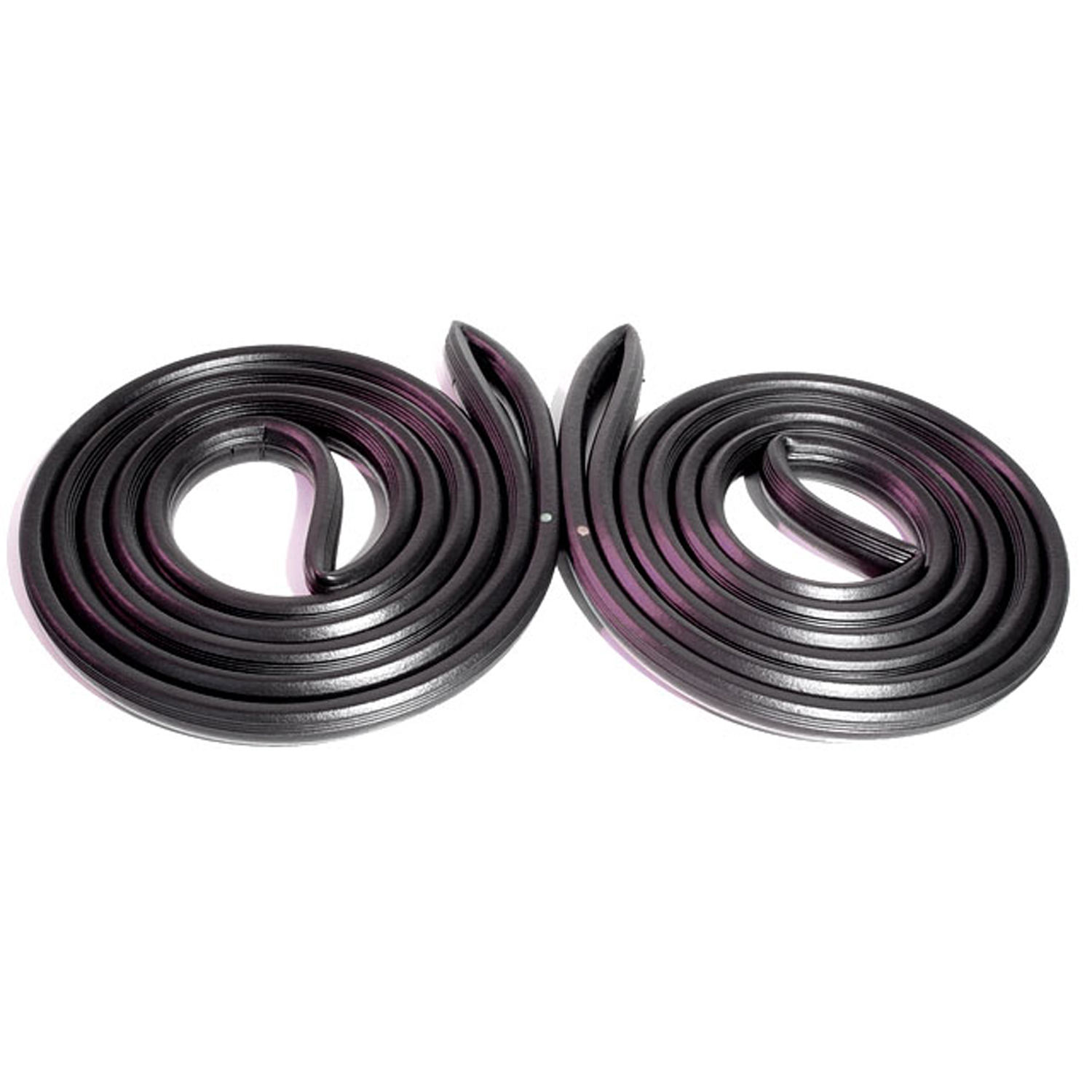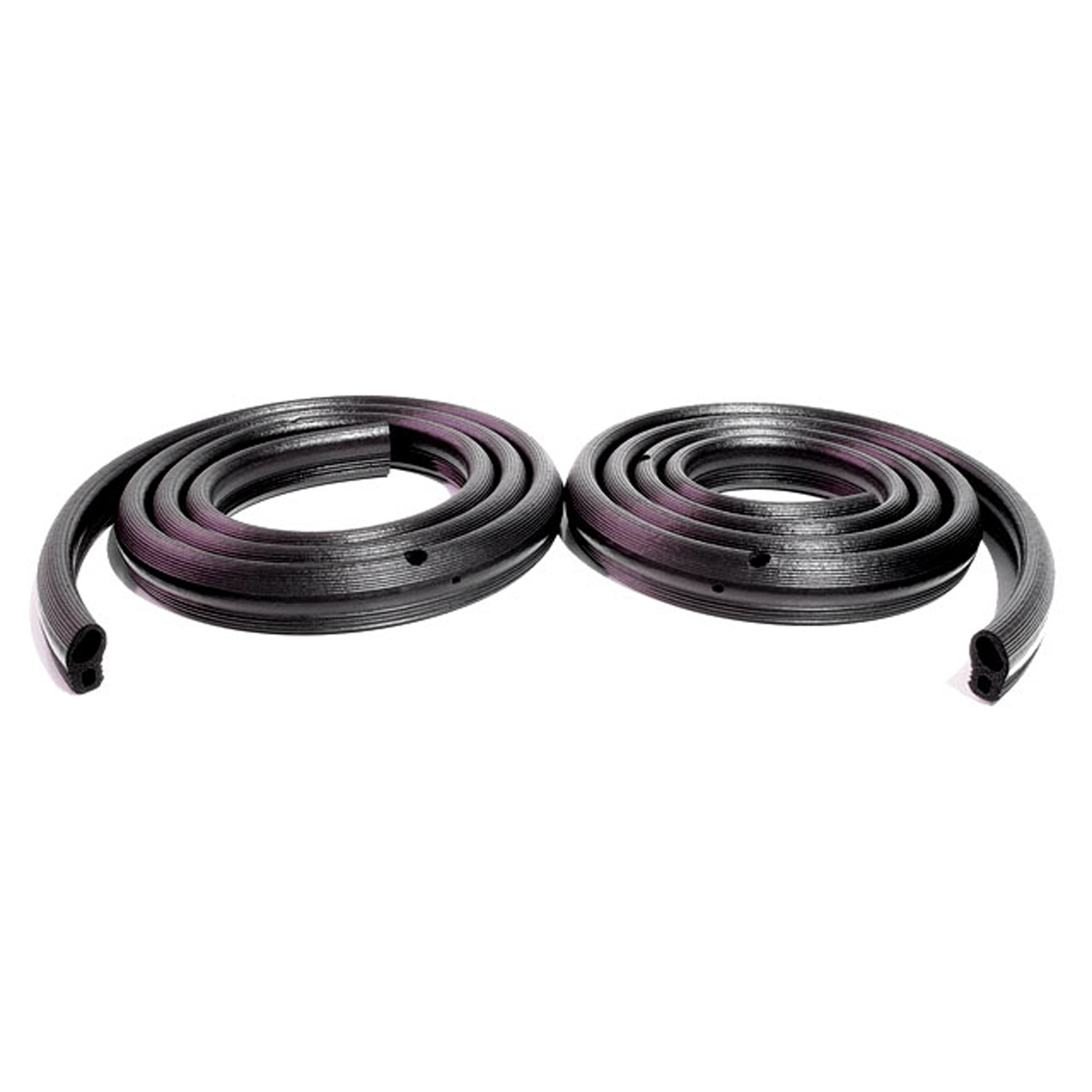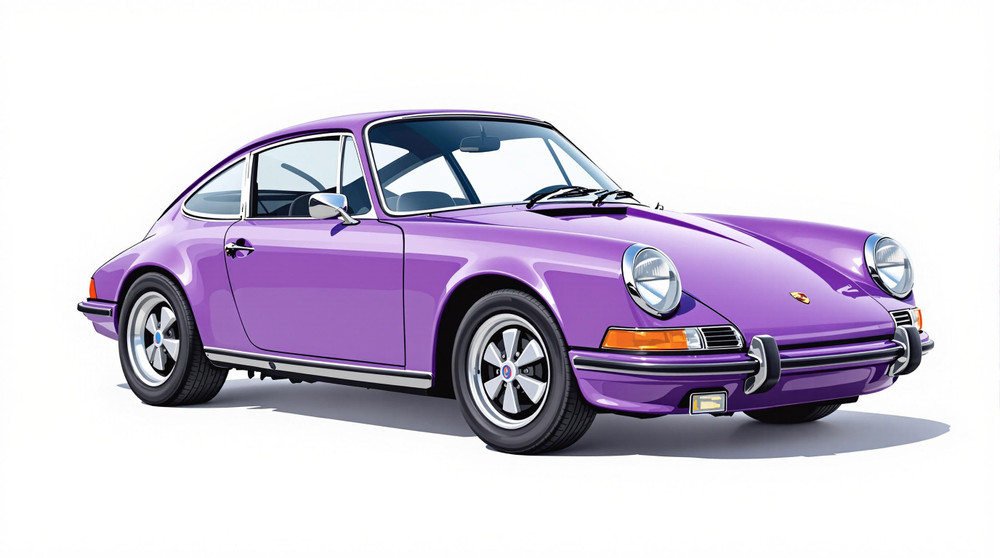Image of 1970 Porsche 911, Note: These illustrations use artistic license and may differ from actual historical models.
Performance Metrics
Fundamental Metrics
Emotional Appeal
MMP Rating
| Engine Specifications | |
|---|---|
| Engine Options: | Flat 6 |
| Displacement Range: | 2.2L |
| Horsepower Range: | 125-180 HP |
| Torque: | 130-170 lb-ft |
| Compression Ratio: | 9.1:1 |
| Ignition System: | Electronic Ignition |
| Cooling System: | Air-cooled |
| Performance Specifications | |
| 0-60 Time: | 8.0 seconds |
| 1/4 Mile Time: | 16.0 seconds |
| Top Speed: | 130 mph |
| Transmission and Drive | |
| Drive Type: | Rear Wheel Drive |
| Transmission Type: | 5-speed manual |
| Fuel and Efficiency | |
| Fuel System Type: | Mechanical Fuel Injection |
| MPG: | 20 MPG |
| Dimensions and Brakes | |
| Brakes: | Disc Brakes |
| Wheelbase: | 89.4 inches |
| Weight: | 2,400 lbs |
Note: Specifications for classic cars are given to the best of our ability, considering the limited and variant data available.
A Timeless Icon: The 1970 Porsche 911
The 1970 Porsche 911 is not just a car; it's a symphony of engineering excellence and design perfection that has captivated enthusiasts for over half a century. Born from the vision of Ferdinand "Butzi" Porsche, the grandson of the company's founder, this model is a testament to Porsche's relentless pursuit of sports car perfection. With its distinctive silhouette and racing pedigree, the 1970 Porsche 911 carved its own niche in automotive history, becoming synonymous with performance and prestige.
Unique among its peers for its rear-engine layout, the 1970 Porsche 911 was part of the long-running success story that began in 1964. This particular year's model marked the transition into what is known as the C Series in the 911 lineage, introducing subtle but significant improvements over its predecessors. It was during this era that the 911 truly solidified its place in motorsport lore, with victories at prestigious events like the Targa Florio.
Design and Innovation
The exterior of the 1970 Porsche 911 is instantly recognizable with its elongated hood, sloping roofline, and pronounced rear fenders. The design is both elegant and functional, with every curve serving a purpose towards aerodynamic efficiency. Inside, drivers were greeted with a cockpit that prioritized ergonomics and driver engagement. The quality of materials—from leather upholstery to the tactile switches—spoke volumes about Porsche's commitment to luxury and craftsmanship.
Technologically, the '70 model featured advancements like improved fuel injection for better performance and efficiency. Color options ranged from vibrant shades like Tangerine to more subdued tones such as Slate Grey, with Signal Red being a particularly popular choice among enthusiasts. Body styles included the classic coupe and the open-top Targa, with the former being especially iconic.
Historical Significance
The 1970 Porsche 911 didn't just turn heads—it turned the tide in sports car design. Its combination of a flat-six engine and rear-wheel drive set new benchmarks for handling precision and balance. This model's influence can be seen in every subsequent iteration of the 911 series and has inspired countless other sports cars in terms of design philosophy and engineering focus.
Performance and Handling
With a top speed approaching 140 mph and an ability to sprint from 0-60 mph in under 7 seconds, the performance of the 1970 Porsche 911 was nothing short of exhilarating for its time. The car's handling characteristics were equally impressive; it was renowned for its responsiveness to driver inputs and its ability to maintain composure on challenging roads. The experience behind the wheel was visceral—the roar of the flat-six engine, coupled with the tactile feedback from the road, created an immersive driving experience that few cars could match.
Ownership Experience
The versatility of the 1970 Porsche 911 meant it was as much at home on daily commutes as it was on weekend track days or at prestigious car shows. Maintenance required a dedicated owner due to some idiosyncrasies inherent to its design, but many found joy in wrenching on their own Porsches. Reliability was generally good for a high-performance vehicle of its era, though parts could be costly.
Fun Facts
The '70 Porsche 911 has had its share of limelight with celebrity owners like Steve McQueen who was known for his love of fast cars. It also set records in endurance racing events and has been both praised for its timeless design and critiqued for quirks like oversteer tendencies—characteristics that only added to its legend.
Collector's Information
Today, a well-maintained 1970 Porsche 911 can fetch anywhere from $70,000 to well over $150,000 depending on condition, provenance, and originality. Production numbers were limited as with most Porsches from this era—exact figures are elusive but estimates suggest several thousand units were produced. As an investment piece, values have been appreciating steadily as classic Porsches continue to be sought after by collectors worldwide.
Conclusion
The legacy of the 1970 Porsche 911 is one of innovation, performance, and timeless appeal. It remains an enduring symbol of automotive excellence that continues to inspire passion amongst collectors and driving enthusiasts alike—a true masterpiece on wheels that stands as a high watermark for sports cars everywhere.
1970 Porsche 911 Catalog of Parts
 1970 Porsche 911 Molded door seals. For Coupes. Pair. R&L.-LM 911-CMolded door seals. For Coupes. Pair. R&L.
1970 Porsche 911 Molded door seals. For Coupes. Pair. R&L.-LM 911-CMolded door seals. For Coupes. Pair. R&L. 1970 Porsche 911 Molded door seals. Fits Targa/Cabriolet. Pair. R&L.-LM 911-TMolded door seals. Fits Targa/Cabriolet. Pair. R&L.
1970 Porsche 911 Molded door seals. Fits Targa/Cabriolet. Pair. R&L.-LM 911-TMolded door seals. Fits Targa/Cabriolet. Pair. R&L.Why Choose Metro?
For over 100 years, Metro Moulded Parts has been the pinnacle of quality in classic car restoration parts. Our commitment to precision and authenticity in every component ensures a perfect fit and an OEM-level appearance.
- Expert Craftsmanship & Quality: Each part is a testament to our dedication to reliability and perfection, crafted from original designs and thoroughly tested.
- Advanced Technology: We use cutting-edge techniques to create flawless, long-lasting parts that surpass others in performance.
- SuperSoft Sponge – The Ultimate Door Seal: Not only are our door seals 30% softer than competitors', but they're also guaranteed to never leak. They effectively reduce wind and road noise, enhancing your classic car's comfort and driving experience.
- Proudly American: Our parts are a product of American craftsmanship, made in the USA with a spirit of excellence and heritage.
- Unrivaled Warranty: We back our products with a 30-year industry-leading warranty, a testament to our confidence in their quality.
Join us in preserving the legacy of classic cars with parts that are crafted for perfection, not just made.

